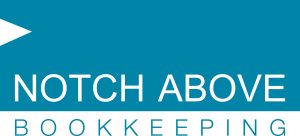What Are Your Super Obligations As A Business Owner?
Superannuation obligation is a tricky subject you need to tackle when you first employ people in your business.
You must invest enough time to get it right because making a mistake can have horrible and expensive consequences.
I am often asked about Super by my clients, and so I thought I’ll touch on a few superannuation basics. This message is for both first time business owners and seasoned ones, and I’ll outline what happens if you miss a payment, pay late or make a mistake, which can be a costly nightmare.
Basics of the Super Guarantee Contribution
If you have employees, you are required by law to pay a minimum super guarantee contribution for them, to help them build a retirement nest. This contribution is tax deductible for your business.
Check the ATO’s latest regulations on which employees you must pay super contributions for, to ensure you don’t miss anyone. Currently, the super guarantee rate is 9.5% of ordinary time earnings, which means ordinary hours worked minus overtime.
The super payments must be made at least 4 times a year, which is quarterly. You can make more frequent payments as long as all your super obligation for the quarter is satisfied and made on time.
You can use clearing houses to help pay your super obligations. A clearing house helps distribute your super contributions to the appropriate super funds on your behalf. If you are a small business with 19 or fewer staff members, you can use the clearing house provided by the government, which is free, called the Small Business Superannuation Clearing House.
Now, here is the important bit.
By law, the super contribution must be in all the employees’ super fund accounts by the 28th day after the quarter ends. Note that it needs to be in the super fund accounts, not being processed, just deposited or sent to a clearing house.
The table below lists the quarterly due dates.
| Quarter | Period | Payment due date |
| 1 | 1 July – 30 September | 28 October |
| 2 | 1 October – 31 December | 28 January |
| 3 | 1 January – 31 March | 28 April |
| 4 | 1 April – 30 June | 28 July |
Source: ATO
Furthermore, a recent law that came into effect between 2015 and 2016 requires you to pay your super contributions using SuperStream. SuperStream was introduced to standardise the payment and data processing of all super contributions.
The accounting software Xero also offers a super stream compliant solution inclusive in its software which makes the payments a breeze.
Previously, businesses were not required to transact electronically, and could pay manually by sending checks in the mail. Data was also not stored properly and generally inconsistent from business to business.
SuperStream sets the data and payment standards, which requires everything to be done and stored electronically. If you are planning to hire for the first time, make sure you read up on your SuperStream obligations first.
What happens if you didn’t fulfil your super obligations?
There may be several reasons why you didn’t make your super payments or paid less than the required amount. Regardless, you will be handed a super guarantee charge (SGC), which is akin to a tax.
You must lodge a SGC statement if you couldn’t fulfil your super obligations. The SGC amount is calculated based on the circumstance which the default happened. If the payment was late, you may be able to offset the SGC with your late payment. If you missed a payment, interest and other penalties will be applied. You should refer to the ATO site on how SGC is calculated.
One thing to remember is, a company director may be personally liable for a SGC. If the company fails to report the outstanding super payment within 3 months of the due date, or the debt is 3 months overdue, a lockdown provision applies. This makes a company director personally liable for the debt, and recovery proceedings may be carried out if you fail to pay up.
Once in lockdown, you are still personally liable for the SGC even if the company winds down. Shutting down the company does not absolve you of your responsibility to an employee’s retirement fund.
Therefore, I always advise company directors to be vigilant and extra careful when it comes to super requirements. For those planning to become a company director, check that there are no SGC outstanding or have a plan to pay it off according to the ATO’s requirements. It is better to be safe than sorry.
The final point I’d like to stress is to always double check or perform an audit to ensure you have paid the required amount and have not missed anything. If you do discover discrepancies before the ATO conducts an audit or an employee raises a complaint, you must report it to the ATO as soon as possible.
Burying your head in the sand will only make things worse. There will be penalties and charges to pay, but you may get discounts depending on when you report it.
Please consult an accountant or a bookkeeper if you need help or feel overwhelmed. I can’t stress enough how vital it is for your business to survive by meeting all your super obligations correctly. Trust me, you don’t want see the bad side of the taxman, as it could cripple your business.
Lastly, don’t forget to pay all your super contributions before the 30th of June, if you plan on claiming the full tax deduction for this financial year. I hope you have a good end of financial year experience without any headache and stress.
If you need to discuss your Super obligations, book a “Next Actions” chat and I we together we can ensure you’re obligations are being met. Book in now or all our office on (07) 3355 6427.
Specialising in Xero bookkeeping, Notch Above is a Brisbane bookkeeper and BAS Agent located in Alderley that offers Xero setup, as well as training and ongoing support. Notch Above can take care of all the bookkeeping tasks you would rather not do, like bank reconciliations, supplier payments, payroll services, debtor control and BAS returns.
Like us now on Facebook
Follow us now on Twitter
Connect with me on LinkedIn
Visit our Website



